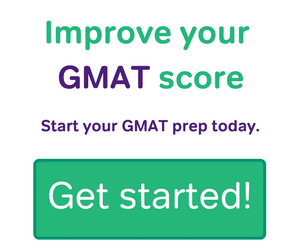First, here are 8 GMAT Sentence Correction problems, each involving some kind of logical issue.
1) Napoleon entered Russia in June, 1812, with an army half a million strong, but leaving in December, 1812, with just less than 30,000 troops.
(A) leaving in December, 1812, with just less
(B) just left in December, 1812, with fewer
(C) left in December, 1812, with just less
(D) left just in December, 1812, with less
(E) left in December, 1812, with just fewer
2) In the early 1800s, seven planets were known, but perturbations in the orbit of Uranus, the seventh planet, suggesting the existence of a hypothetically eighth planet.
(A) suggesting the existence of a hypothetically
(B) suggesting the existence of a hypothetical
(C) to suggest the existence of a hypothetical
(D) suggested the existence of a hypothetical
(E) suggested the existence of a hypothetically
3) Potassium, whose outer electron is easily lost, is a highly reactive metal.
(A) Potassium, whose outer electron is easily lost, is a highly reactive metal
(B) Potassium is a highly reactive metal, it has an outer electron that is easily lost
(C) A highly reactive metal, potassium, with an outer electron that is easily lost
(D) The outer election of potassium, a highly reactive metal, is easily lost.
(E) A highly reactive metal that easily loses its outer electron is named “potassium.”
4) Although Bryant was better at gaining the support of rural voters than was McKinley, people who believed a silver-based economy would bring prosperity, McKinley won the 1896 election on a strong industry-based vote.
(A) Bryant was better at gaining the support of rural voters than was McKinley
(B) Bryant was better gaining the support of rural voters than McKinley
(C) Bryant was better than McKinley at gaining the support of rural voters
(D) compared to McKinley, Bryant had gained the support of rural voters more effectively
(E) unlike McKinley, Bryant was better at gaining the support of rural voters
5) Since the discovery of the Tufted Badger and other species in the ecosystems outside Vancouver, the number of riparian mammals in the Pacific Northwest has increased considerably.
(A) Since the discovery of the Tufted Badger and other species in the ecosystems outside Vancouver, the number of riparian mammals
(B) Since the Tufted Badger and other species in the ecosystems outside Vancouver have been discovered, the number of riparian mammals
(C) Because the Tufted Badger and other species in the ecosystems outside Vancouver have been discovered, the total riparian mammal number
(D) With the discovery of the Tufted Badger and other species in the ecosystems outside Vancouver, the number of known riparian mammals
(E) With the discovery of the Tufted Badger, as well as other species, in the ecosystems outside Vancouver, the number of riparian mammals
6) Developing East Asian information technology sectors, especially the ones in Vietnam, have been found by a consulting firm to be potential consumers to Cystar’s Hyperfast Server systems.
(A) Developing East Asian information technology sectors, especially the ones in Vietnam, have been found by a consulting firm to be potential consumers to Cystar’s Hyperfast Server systems
(B) According to a consulting firm, developing East Asian information technology sectors, particularly Vietnam, would be potential consumers for Cystar’s Hyperfast Server systems
(C) The potential consumers of Cystar’s Hyperfast Server systems, according to a consulting firm, are the developing East Asian information technology sectors, particularly those in Vietnam.
(D) Cystar’s Hyperfast Server systems has potential customers in the the developing East Asian information technology sectors, particularly those in Vietnam according to a consulting firm
(E) A consulting firm has found that developing East Asian information technology sectors, particularly in Vietnam, would be potential consumers of Cystar’s Hyperfast Server systems
7) In the recent incidents of gang violence, it is the fact that innocent people were injured that has especially troubled the city leaders.
(A) In the recent incidents of gang violence, it is the fact that innocent people were injured that has especially troubled the city leaders
(B) The city leaders were especially troubled by the innocent people who were injured in the recent incidents of gang violence
(C) The innocent people, injured in the recent incidents of gang violence, especially troubled the city leaders
(D) In the recent incidents of gang violence, it is a fact that innocent people were injured and that the city leaders were especially troubled
(E) In the recent incidents of gang violence, innocent people were in fact injured, and this has especially troubled the city leaders
8) The Treaty of Utrecht, a series of documents signed in 1713, brought a peace that put an end to the plan of Louis XIV of France to upset the balance of power in Europe by gaining significant influence over the Spanish Empire.
(A) The Treaty of Utrecht, a series of documents signed in 1713, brought a peace that put an end to the plan of Louis XIV of France to upset the balance of power in Europe by gaining significant influence over the Spanish Empire
(B) The Treaty of Utrecht, a series of documents signed in 1713, bringing peace by putting an end to the plan of Louis XIV of France, who wanted to upset the balance of power in Europe when he gained significant influence in the Spanish Empire
(C) A series of documents signed in 1713, known as the Treaty of Utrecht, restored peace to Europe by putting an end to the plan of Louis XIV of France, who, in gaining significant influence over the Spanish Empire, wanted to upset the balance of power in Europe
(D) The balance of power in Europe was threatened when Louis XIV of France tried to gain significant influence in the Spanish Empire; therefore the Treaty of Utrecht, a series of documents signed in 1713, restored the peace by ending this plan
(E) Louis XIV of France planned to upset the balance of power in Europe by gaining significant influence with the Spanish Empire, but in 1713, a series of documents known as the Treaty of Utrecht was signed, and this put a peaceful end to the plan
Explanations for these questions will come at the end of this article.
Logic on the GMAT Sentence Correction
Some students naïvely believe that the GMAT Sentence Correction tests only grammar, and these students believe that by mastering grammar, they can master the SC questions. This view is mistaken. In fact, grammar, logic, and rhetoric all play a role. Here are a few previous blogs that address logical issues on the GMAT Sentence Correction.
a) Logical Predication on the GMAT Sentence Correction
b) GMAT Sentence Correction: Indefinite Pronouns and Logic
c) Logical Splits in GMAT Sentence Correction
It’s very important that the precise logical meaning of the sentence reflect what the sentence is trying to say. Many times in colloquial English, people say something that conveys meaning informally even though, rigorously, it is not logical. Many of the logic mistakes on the GMAT reflect this: we can tell what the sentence means, despite what it is saying. For the GMAT, a good sentence is one in which grammar and logic and rhetoric are all working together to convey a single meaning.
Since many GMAT takers overemphasize grammar and neglect logic, at least one or two answer choices on many SC questions are 100% grammatically correct but logically flawed. Some of the answer choices above follow this pattern. Once again, mastery of GMAT Sentence Correction requires understanding how grammar, logic, and rhetoric all work together and support each other.
Summary
If anything said here, or anything in those linked blogs, gave you any insights, then you may want to look over some of the questions again before studying the explanations below. Think about logic in the writing you observe. Advertisements are wonderful places to see blatant logical errors. Also, observe how high-quality, sophisticated writers use logical precision to make their points.

Practice Problem Explanations
1) Split #1: countable vs. uncountable. Troops are countable, so we need to use “fewer,” not “less.” We can eliminate (A), (C), and (D) on the basis of this error.
Split #2: One of the more subtle logical splits on GMAT Sentence Correction involves the placement of adverb modifiers. In this sentence, where should the “just” fall? What do we want to denote as significantly limited? Choice (B) has “just left,” as if we expected Napoleon to do something else, something more complicated or exalted, than the act of leaving; that interpretation is not the meaning, because the sentence is not contrasting the intensity of that action with any other.
By contrast, “just fewer than 30,000” retains the meaning of the prompt and emphasizes the shocking reduction in Napoleon’s army, which is the point of the sentence.
The best answer is (E).
2) A question about the events that led to the discovery of Neptune in 1846.
Split #1: the famous missing-verb mistake. In the overall organization of the sentence, we have a first independent clause, “seven planets were known,” then the conjunction “but,” which signals another independent clause coming. For this second independent clause, we get a noun for the subject, “perturbations in the orbit of Uranus,” and we need a full bonafide verb. Choices (A) & (B) give us a participle, and choice (C) gives us an infinitive, but these won’t do. We need the full verb “suggested,” which appears in (D) & (E). We can eliminate (A) & (B) & (C).
Split #2: One kind of logic split involves the choice between an adjective and its corresponding adverb. Here, we have to choose between “hypothetical” and “hypothetically.”
As an adjective, it would have to modify the noun. If we say “a hypothetical eighth planet,” then we are saying that we don’t know whether the planet exists, but if it did exist after the first seven, of course it would be the eighth.
As an adverb, it would have to modify the adjective. If we say “a hypothetically eighth planet,” then we are saying that we are not sure where the planet would fall in the numbering system: it could be the eighth or could be some other number; in this phrasing, it sounds as if the numbering is in doubt, but not the existence of the planet itself.
What was actually in doubt at that moment in history was the planet itself. Of course, if it came after the first seven planets, it would be the eighth: that much was not in doubt. The existence of the planet was in doubt. The adjective “hypothetical” reflects this meaning. We can reject the choices with “hypothetically,” choices (A) and (E).
The only possible answer is (D).
3) A question about potassium, the 19th element on the Periodic Table. The five answers are all different, so we must treat each separately.
(A) Use of the possessive “whose” is perfectly fine either for a person or for an inanimate object. This option is grammatically and logically correct. This is a promising choice.
(B) This option is a run-on sentence with a comma splice. This is incorrect.
(C) This option commits the famous missing-verb mistake. We get a main subject, “a highly reactive metal,” and this subject never gets a full verb. This is incorrect.
(D) This is grammatically correct but awkward. It makes the electron, rather than potassium the element, the focus of the sentence, which casts the entire sentence into the passive. This is far from ideal.
(E) This choice is logically incorrect. It implies that any “highly reactive metal that easily loses its outer electron” would be called potassium, as if potassium were the name of a category of metals with similar properties, rather than a single metal. While you don’t need to understand chemistry (see below), you do need to keep the meaning consistent with the prompt. The prompt identifies potassium as a single metal, so we have to stick with that interpretation.
Choice (D) is a questionable answer, so (A) is by far the best answer here.
BTW, this is more than you need to know for the GMAT, but if you are interested in the chemistry, then on the Periodic Table of the Elements, all the IA elements below hydrogen are highly reactive metals that easily lose an outer electron. These include lithium, sodium, potassium, rubidium, and caesium (a radioactive liquid that explodes on contact with air or water!) Potassium is the name of one metal in this category, not the name of the category. Sometimes the category is known as the Alkali Metals or the IA Elements.
4) A question about William Jennings Bryan and President William McKinley.
Split #1: the underlined section is followed by the appositive phrase “people who believed a silver-based economy would bring prosperity.” These people are the rural voters, so this modifier must touch “rural voters.” Where this modifier touches McKinley, it is a misplaced modifier, illogically equating this person to “people.” Choices (A) & (B) make this mistake.
Let’s look at the three remaining choices.
(C) This is grammatically and logically sound. This is a promising choice.
(D) This is an unidiomatic and awkward comparison, “compared to A, B is more X.” While technically correct, we can reject this because there are more elegant possibilities.
(E) This is an illogical comparison. We could say, “Unlike B, A is good at X,” which tells us that there is no question of degree: A is good at X, and B is not. Alternative, we could say ” A is better at X than is B,” which tells us that it’s a question of degree: both are good, but A is better. Choice (E) mixes elements of either comparison to create a logically ambiguous comparison: we get that Bryan is better, but was McKinley not good at all or simply not as good as Bryan?? Choice (E) is illogical and wrong.
The best answer is choice (C).
5) This question contains a very subtle logical split. Let’s think about this. In this natural ecosystem outside of Vancouver, there are some number of riparian mammals living out in Nature, just doing what they are doing. Whether they live or die, thrive or fail, depends on a host of natural factors but most certainly does not depend on what the scientists know or don’t know. Thus, when scientific researchers make a new discovery, the actual number of mammals out in the world does not change—all that changes is our knowledge! It is the height of our arrogance as a species to think that some change in our knowledge actually changes anything in the natural world around us! The number of riparian mammals doesn’t change: all that changes is the number of known riparian mammals. In other words, mammals that were there all along have crossed in our human scientific categories from unknown to known. The only choice that reflect his perspective is (D), the OA.
6) One of the logic splits in this problem concerns the way Vietnam is mentioned. The problem discusses “East Asian information technology sectors” and wants to cite the specific example of the information technology sectors in Vietnam. Notice how this appears in the five choices.
(A) Here, “the ones in Vietnam” is a little informal but logically and grammatically correct. The overall passive structure of this choice makes it weak and mealy mouthed. It is technically correct but undesirable. We hope there is something better so that we don’t have to settle for this.
(B) The phrase “particularly Vietnam” is an illogical comparison: it makes Vietnam the country sound like nothing more than an information technology sectors. Choice (B) is illogical and incorrect.
(C) In this choice, the mention of Vietnam is fine, but the entire choice changes the meaning. The prompt suggested that the “developing East Asian information technology sectors” are one possibility for customers, but it doesn’t exclude the possibility that other potential customers are elsewhere in the world. The phasing in (C) makes the possibility exclusive, suggesting that these East Asian possibilities are the only possibilities for new customers. That’s an unwarranted change in meaning, so (C) is incorrect.
(D) This choice changes the meaning in a different way. The mention of Vietnam is logically correct, but the placement of “according to a consulting firm” makes it sound as if only the Vietnam case were the substance of the consulting firm’s recommendation, rather than the entire East Asian theater. In other words, the exact information provided by the consulting firm is different in this choice. This is also a change in meaning, so (D) is also incorrect.
(E) This choice is entirely correct, both logically and grammatically. It is direct, crisp, and clear, a powerful rhetorical statement. Notice that the mention of Vietnam elegantly uses a parallel structure that omits common words. This is a masterpiece of concision and clarity. This choice is much better than (A). Choice (E) is the best answer.
7) Split #1: One logical split in this problem concerns what actually troubled the city leaders? The innocent people themselves did not trouble the city leaders. The fact that innocent people were injured is what troubled the city leaders. Although both grammatically correct, choices (B) & (C) make the mistake of implying that the innocent people themselves were troubling: this is illogical, and these two choices are incorrect.
Split #2: pronoun problem. The pronoun “this” in choice (E) is problematic. Everything up to the second comma is fine, but then the pronoun “this” refers to the action of the previous clauses. Pronouns must have nouns as their antecedents: pronouns can’t refer to the action of a verb. This is an invalid use of pronouns, and choice (E) is incorrect.
Split #3: logical cohesion. Entirely grammatically correct, choice (D) presents the two facts side-by-side, (1) innocent people were injured, and (2) city leaders are troubled. The relationship between these two facts is not made clear, and we are left to infer this. It’s not hard to guess, but a rhetorically powerful sentence doesn’t leave its main point up to guesswork for the reader. Choice (D) is incorrect.
This leaves choice (A). Choice (A) may seem wordy, because it employs the emphatic structure of the empty “it.” This structure is justified by the subject, and this choice makes all the logically relationships explicitly clear. It is direct and powerful. Choice (A) is the best answer.
8) A sentence about the famous Treaty of Utrecht that mentions the Sun King, Louis XIV. The whole sentence is underlined, so we will go through each choice individually.
(A) This choice is grammatically and logically correct. This is a promising choice.
(B) This choice commits the famous missing-verb mistake. The Treaty appears to be the subject, but there is no bonafide verb in the entire sentence. Choice (B) is incorrect.
(C) This choice makes the rhetorically questionable move of making the bland phrase “series of documents” the main subject, while relegating the actual name of the treaty to a parenthetical mention. This strangely de-emphasizes the treaty that presumably is the focus of the sentence. Also, the second half of the sentence changes the logical relationship of Louis XIV’s actions. Choice (C) is incorrect.
(D) The prompt tells us one effect of the Treaty of Utrecht. Was this the only effect of this treaty? That’s unclear and outside the scope of the sentence, but the prompt leaves open the possibility that this treaty had many effects and it is discussing only one of these effects. Choice (D) implies that the effect discussed in the sentence is the only effect of the treaty, and this a change in meaning. Choice (D) is incorrect.
(E) The first half of the sentence focuses on one of the most powerful actors of 17th century Europe, Louis XIV, making him the subject. All well and good, but now the Treaty of Utrecht is relegated to a small detail role in the sentence, so the focus is now completely different. Also, the ending of this is awkward and slightly different in meaning from the prompt. Choice (E) is incorrect.
The only possible answer is choice (A).






Leave a Reply